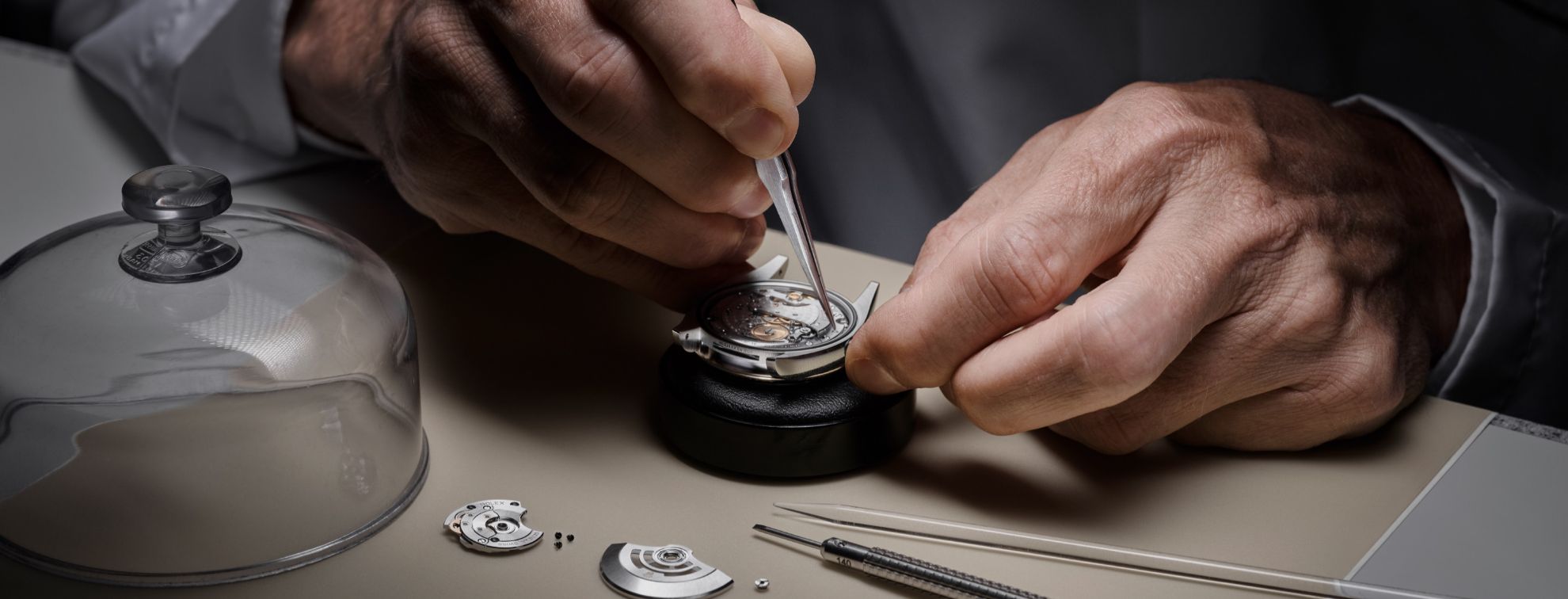
To preserve the brilliance of your timepiece, we recommend gently wiping it with microfiber cloth on occasion. Additionally, cleaning the case and bracelet with soapy water and a soft brush proves to be highly effective. After wearing your watch in the sea or pool, always rinse it thoroughly with fresh water to remove any salt or chlorine residue. Always ensure that the winding crown is screwed down properly against the case to guarantee waterproofness.
As electronic devices have become an integral part of our daily lives; mechanical watches are now exposed to magnetic fields more than ever before. These magnetic fields are emitted by common gadgets such as computers, mobile phones, televisions, and speakers. While modern watches are designed to be more resistant to these magnetic environments, mechanical timepieces that are frequently near such devices may sometimes experience slight accuracy issues. However, it's important to note that this doesn't necessarily indicate a malfunction. In most cases, the problem can be quickly corrected with a brief anti-magnetic treatment, and there’s no need to disassemble the delicate mechanical components of the watch.
Mechanical watches are made up of tiny gears, screws, springs, and other delicate components that are often invisible to the naked eye. These parts are carefully lubricated with specially formulated oils designed for watchmaking. However, when a watch is struck or dropped, these tiny components can shift or sustain damage. Additionally, the lubricating oils may slip out of place, causing the parts to work improperly. These adverse effects can lead to issues such as the watch running slow, fast, or even stopping—either immediately or after some time.
Direct sunlight or excessive heat can cause the lubricating oils within your watch’s movement to degrade, potentially leading to issues such as the watch running slow, fast, or even stopping—either immediately or overtime. Additionally, prolonged exposure to direct sunlight can cause discoloration of the dial and, if present, the leather strap of your watch
Leather straps are made from genuine leather, they naturally wear out over time, typically within about a year. To prolong the life of your leather strap, it's important to keep it away from sweat, salty water, pool water, and any other moisture or acidic substances.
Waterproof watches are designed to withstand specific conditions. One of the most important requirements is that the crown must be securely closed (screwed down). If the crown is not fully sealed, the watch can allow water to enter. Additionally, the water resistance of a watch is not permanent. Just as regular maintenance is required to maintain accuracy, periodic servicing is also essential to ensure continued water resistance. During servicing, components responsible for water resistance, especially gaskets—are replaced with new ones.
Mechanical watches are complex mechanisms with many metal parts and gears working in harmony. To prevent wear, these components are lubricated during manufacturing, but over time, the oils dry up, and the parts begin to rub against each other, causing friction and wear. For this reason, regular service is crucial to both the functionality and longevity of your watch. All watch mechanisms require periodic maintenance, and for mechanical watches, this interval is typically every 5 to 7 years. Depending on usage conditions, this period may be shorter. Regular maintenance ensures your watch continues to perform effectively for many years. Delaying maintenance until significant issues arise can not only lead to higher repair costs but also reduce the overall lifespan of your timepiece.
To keep your jewelry looking its best, it’s important to clean it regularly to remove dirt, oils, and sweat that naturally accumulate. Simply use warm water and a soft-bristled brush to gently clean your pieces, ensuring they stay sparkling and fresh. However, some delicate stones, especially those like opals that are sensitive to water and heat, may become damaged when exposed to such elements. Therefore, extra care should be taken when cleaning jewelry that contains these types of stones.
When it comes to storing your jewelry, the best way to protect it is by keeping it in its original box or pouch. This helps prevent scratches and damage. Avoid placing heavy objects on top of your jewelry or storing it next to other pieces that could cause it to lose its shape. For necklaces and chains, always store them closed and flat, ensuring they maintain their integrity.
It’s essential to keep your jewelry away from harsh chemicals like perfumes, hairsprays, and cleaning products. These substances can cause gemstones to lose their luster or change color. Additionally, always be mindful of impacts—dropping your jewelry or exposing it to hard surfaces can crack delicate stones or deform precious metals, so take care to keep your pieces safe from damage.
The watch should be placed on the watch winder as shown above, with the dial facing forward.
The Swiss Kubik Watch Winder requires no special maintenance. It is recommended to clean it regularly with a damp microfiber cloth and then wipe it dry.
When powered by electricity, the watch winders do not drain the battery life.
For optimal performance and longevity (when not using electricity), it is essential to operate the winder with only C-size industrial batteries (1.5V alkaline). Rechargeable batteries are not suitable for use.
The lifespan of industrial batteries is a minimum of 3 years. To ensure the Swiss Kubik Watch Winder continues to function flawlessly, it is recommended to replace both batteries with two new ones of the same type when it's time for a battery change.